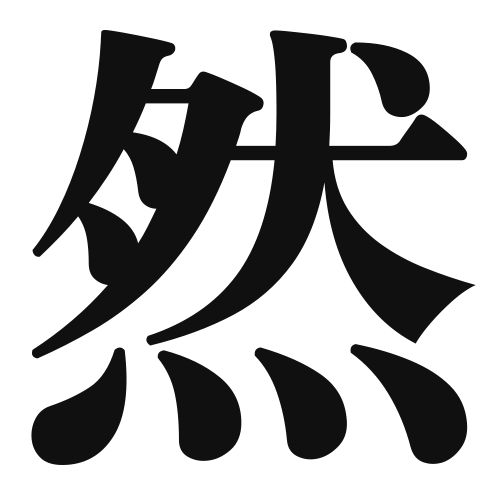1. Overview of Meaning
The kanji “然” (pronounced “zen” or “nara”) generally means “natural,” “so,” or “thus.” It conveys a sense of something being in its natural state or a confirmation of a situation.
2. Formation and Radical
Formation of the Kanji: The kanji “然” is a compound character (会意文字) that combines elements to convey its meaning. It consists of the radical “火” (fire) and “然,” which together suggest a natural state or condition.
Radical: The radical of “然” is “火,” which relates to fire, symbolizing transformation and change, often associated with natural phenomena.
3. Examples of Usage
Common Words and Phrases: Some frequently used words that include “然” are “自然” (shizen – nature), “当然” (touzen – of course), and “然るべき” (sharubeki – appropriate).
Example Sentences in Daily Conversation:
- この場所は自然が豊かです。 (Kono basho wa shizen ga yutaka desu.) – This place is rich in nature.
- それは当然のことです。 (Sore wa touzen no koto desu.) – That is a matter of course.
4. Synonyms and Antonyms
Similar Kanji: A similar kanji is “自然” (shizen), which means “nature.” While “然” focuses on the state of being, “自然” emphasizes the concept of nature itself.
Opposite Kanji: An antonym could be “不自然” (fushizen), meaning “unnatural,” which indicates something that is not in its natural state.
5. Cultural and Historical Background
Relation to Japanese Culture: The concept of “自然” is deeply rooted in Japanese culture, reflecting the appreciation for nature and its elements. This is evident in traditional arts, literature, and philosophy.
Proverbs and Idioms: One common saying is “自然の摂理” (shizen no setsuri), which means “the laws of nature,” emphasizing the importance of understanding and respecting natural processes.
